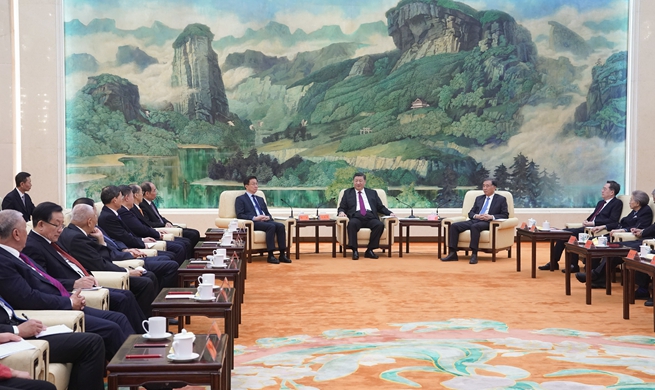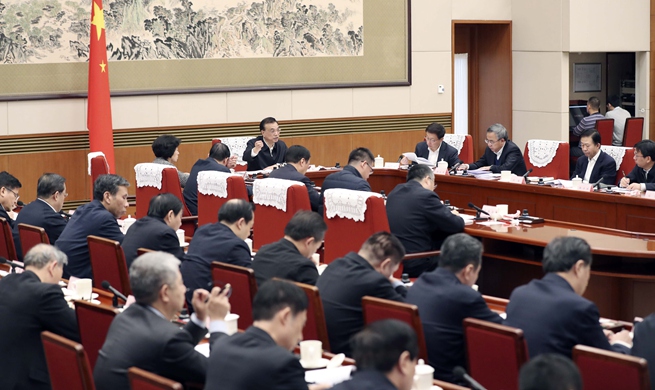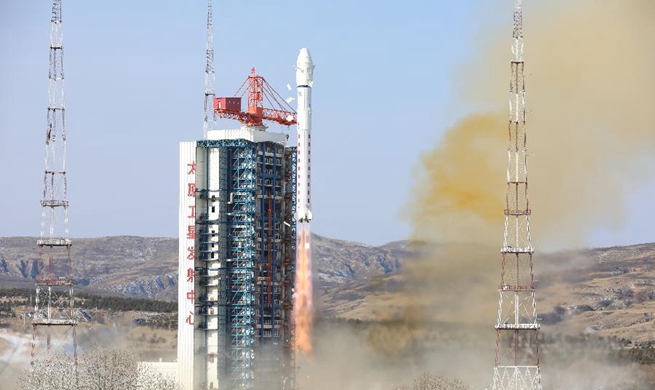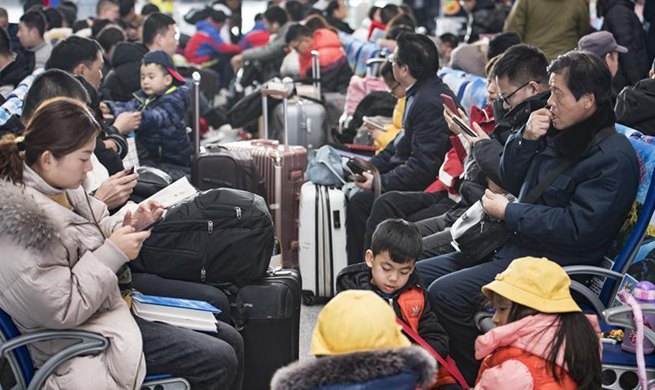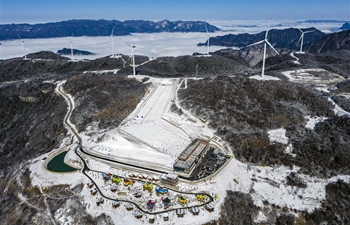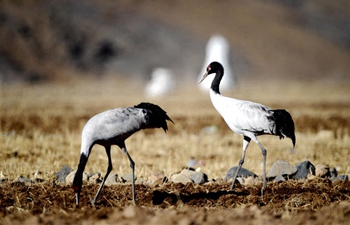LONDON, Jan. 15 (Xinhua) -- Climate crisis will be the top threat to the world in the next decade, the World Economic Forum (WEF) warned in its latest report on Wednesday.
According to the report, the biggest risks to the world over the next 10 years, ranked by likelihood, include extreme weather, failure to tackle climate change, human-made environmental damage, major biodiversity loss and ecosystem collapse, and major natural disasters.
The Global Risks Report came before the WEF annual meeting next week in the snow-capped Swiss town of Davos, where nearly 3,000 participants from all over the world, including 53 heads of state or government, will discuss global economy, sustainable development, geopolitics and other topics.
"The political landscape is polarized, sea levels are rising and climate fires are burning. This is the year when world leaders must work with all sectors of society to repair and reinvigorate our systems of cooperation, not just for short-term benefit but for tackling our deep-rooted risks," Borge Brende, president of the WEF, said at a press conference in London.
The report warned that without urgent attention to repairing societal divisions and driving sustainable economic growth, world leaders cannot systemically address threats like climate or biodiversity crises.
Analysts said pressure is mounting on businesses to take action to help tackle rising climate volatility.
John Drzik, chairman of Marsh & McLennan Insights, a global professional services firm that worked with WEF on this report, said that scientific advances mean that climate risks can now be incorporated into risk management and business plans, as high profile events like recent wildfires in Australia and California are adding pressure on companies to take action on climate crisis.
"The biggest incentive for businesses is to see where growth opportunity is to do things differently in a low-carbon way. That can be everything from recognizing consumers' demand for low-carbon products to governments putting in regulations that will signal the (unsustainable) way products are manufactured or services are sold will not be profitable in the longer term," Emily Farnworth, head of Climate Change Initiatives at the WEF told Xinhua.
Meanwhile, the report said downward pressure on the global economy continued to intensify in 2019, increasing the risk of economic stagnation.
It warned a challenging economic climate may persist this year and "economic confrontations" and "domestic political polarization" are recognized as significant short-term risks in 2020.










